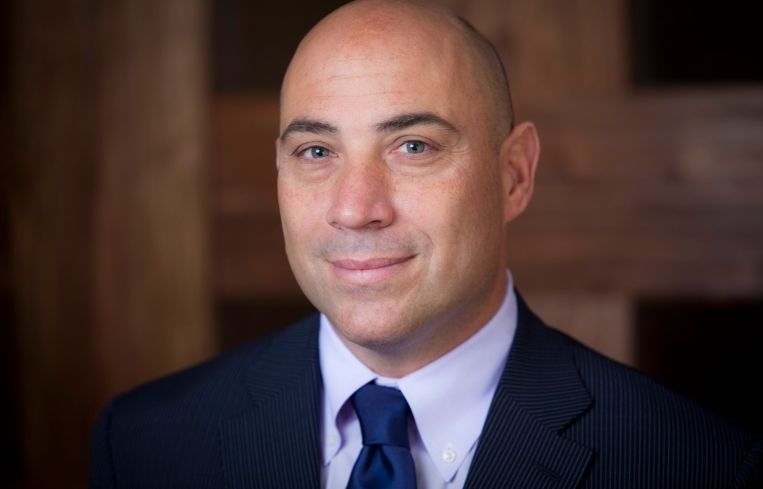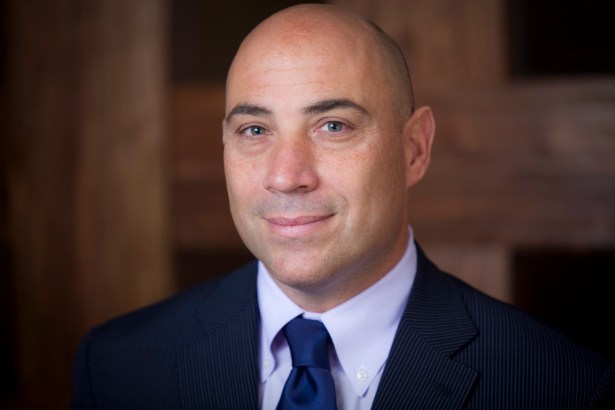Anthony Orso Talks Cantor Commercial Real Estate Expansion
By Damian Ghigliotty February 25, 2014 12:01 pm
reprints

Cantor Commercial Real Estate CEO Anthony Orso met with Mortgage Observer to discuss his entry into the business and the challenges he and his colleagues overcame to secure their first stand-alone CMBS deal in 2014. The team of about 330 employees is reportedly preparing for an IPO to take place later this year, however, Mr. Orso declined to comment on that.
Mortgage Observer: How did you get started in commercial real estate finance?
Anthony Orso: I got started in the real estate business, because my family was in the construction business. My first formal entry into the business on the finance side was after business school. I went to Columbia Business School and got a degree in real estate finance, and my first real estate finance job was at Chemical Bank starting in 1990.
Michael Lehrman, whose desk is right over there [points], and I met literally the first day of business school in an orientation class, and we formed our first business together at Columbia Business School in the fall of 1988. We had a small consulting business that we ran together while we were in business school, and we’ve been working together ever since.
How has your team grown since you, Lehrman and Steve Kantor left Credit Suisse in 2009 to help build Cantor Commercial Real Estate?
When we got started in 2010, we were about 20 some odd people in real estate here after we put a small team together. Now on the real estate finance side, CCRE and our affiliate, Berkeley Point, a recent acquisition we made, together we’re over 330 people with 15 offices across the country.
What were the biggest challenges in getting CCRE up and running?
The real estate market overall was still sort of in a depressed state. The finance business hadn’t picked up yet. The CMBS business was virtually nonexistent in 2010. It was really towards the latter part of 2010 that the markets showed some signs of coming back. We saw the amount of CMBS loans securitized go from roughly $12 billion in 2010 to $33 billion in 2011 to $48 billion in 2012 to roughly $86 billion in 2013, and we’ve made a prediction that we think this year will be $125 billion.
So you can see the real estate market was still experiencing great foreclosures, the special servicers were taking back assets at a pretty alarming rate, vacancies were high, and market rents had fallen; in all categories including New York City, the overall credit markets were not good, the home finance obviously was depressed, and the corporate bond business was depressed. All the markets across the board were bad.
What opportunities did you see in all that?
While we didn’t know when the markets would turn around, we knew one thing: There were massive amounts of refinancing that would have to happen starting this year. We also knew that in 2012 and 2013 there would be a number of financings that would come due, and we knew that there would have to be some mechanism in the markets to do it. As the banks were still dealing with the regulatory issues because of Basel III and Dodd-Frank, we thought a private finance company could be another alternative. That’s kind of why we started CCRE.
To what extent has your team’s volume of business grown since you got off the ground in 2010?
We completed our first securitization in 2011, which was our first full year. That year, we securitized $1.4 billion, in 2012 we securitized $3.1 billion, and last year we securitized $5.3 billion. We’ve created a national footprint with boots on the ground across the country, with our newest office located in San Francisco. This strategy has paid off for us, because it has allowed us to expand in markets where our competitors have little presence.
Up to now, we had been in the conduit business. We did our first stand-alone CMBS deal this year. We just completed a $620 million financing for ARC Properties for a portfolio of 82 properties across the United States. We sold that 10-year deal on Jan. 30. In the conduit world, we were No. 2 in loan count and No. 4 in volume against some of the largest banks. In a very short period time, we’ve become competitive with firms that have had experience and established businesses for decades.
I was recently tipped off about an interesting hotel deal in the Caribbean that you and your team closed at the end of last year. Can you talk about that deal?
In November 2013, we closed a $130 million five-year, floating-rate loan for a Ritz-Carlton hotel in the Cayman Islands. That was a very interesting transaction, and most people don’t know we did it. I think the ability to finance a hotel outside the United States that can now be put into a securitization shows the strength of the market, because bond buyers feel comfortable with the underwriting of these kinds of assets. It’s a perfect example of how the market is continuing to stabilize.
Mr. Orso ranked No. 9 on this year’s 50 Most Important People list.



